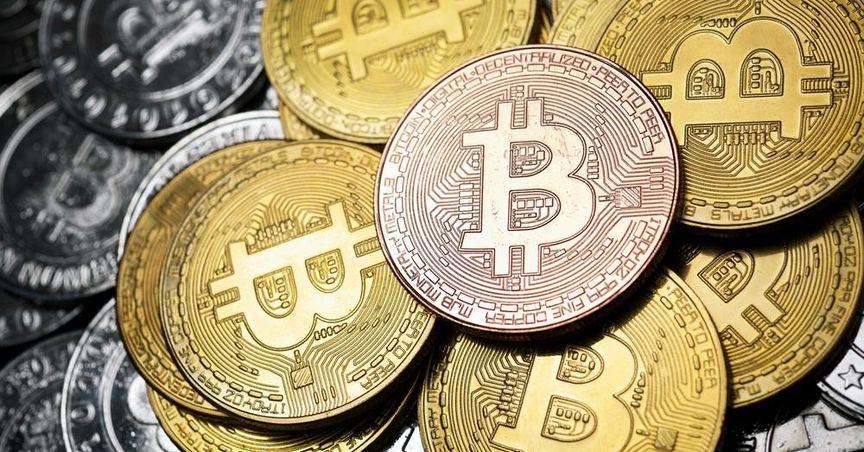Highlights
- HK Asia Holdings (HKAH) soars after disclosing its acquisition of one Bitcoin
- The firm joins a growing roster of public companies embracing digital assets
- Regulatory and economic shifts drive market dynamics in the investment sector
In the category, HK Asia Holdings Limited (HKAH), a prominent Hong Kong-based firm, has experienced a dramatic surge following the announcement of its acquisition of one Bitcoin. The disclosure, made in a corporate announcement, has led to a significant jump in the firm’s share price on the Hong Kong Stock Exchange, propelling it near levels not seen since a peak reached in mid-2019. This move by HK Asia Holdings places the company among an expanding list of public entities that are embracing digital assets as part of their strategic asset mix, mirroring trends observed in other markets where established firms such as (ASX:BHP) have redefined traditional asset portfolios.
Embracing Digital Transformation in Traditional Investment Firms
Public companies worldwide have been reevaluating their asset strategies in light of the rapid growth in digital assets. HK Asia Holdings’ decision to acquire Bitcoin reflects a broader shift in the investment sector, where digital currencies are increasingly recognized as a store of value. The firm’s board has highlighted the role of Bitcoin amid global economic uncertainty, noting that government stimulus measures and an expanding money supply have put pressure on traditional fiat currencies. By incorporating digital assets into its asset mix, HK Asia Holdings is aligning itself with a trend that is gaining traction among public companies looking to diversify their portfolios.
Comparative Market Movements and Industry Trends
Across Asia and beyond, several public companies have announced similar strategic moves. For instance, a notable Hong Kong-based construction company recently disclosed that a subsidiary acquired a significant quantity of Bitcoin, while an investment firm in Japan has reported staggering gains following its gradual accumulation of digital assets over the past year. These moves serve to underscore a growing confidence in the role of digital assets as strategic holdings in an era marked by economic volatility. HK Asia Holdings’ recent announcement has spurred market activity, with its share price surging to levels close to its historical highs. The robust reaction by the market highlights how digital asset strategies are becoming a critical component of corporate asset allocation in the contemporary investment landscape.
Digital Assets as a Hedge in Uncertain Times
The global economic climate, characterized by uncertainties and policy shifts, has prompted companies to explore alternative assets that offer a hedge against currency depreciation. Digital assets, particularly Bitcoin, have emerged as a viable option due to their decentralized nature and limited supply. HK Asia Holdings’ acquisition is part of a broader narrative that sees digital assets serving as a counterbalance to traditional economic challenges. With regulatory environments gradually evolving and institutional frameworks beginning to adapt to digital trends, public companies are now more prepared to incorporate such assets into their long-term strategies. This shift not only provides a potential hedge against economic turbulence but also positions these companies at the forefront of technological and financial innovation.
Regulatory and Economic Factors at Play
Global regulatory dynamics continue to influence how digital assets are integrated into corporate balance sheets. Recent discussions among policymakers have centered on creating a more predictable regulatory framework for digital currencies, which in turn has boosted confidence among public companies. In parallel, macroeconomic factors such as rising money supplies and aggressive government stimulus programs have led to concerns about the future value of traditional currencies. Public companies that adopt digital assets are seen as taking proactive steps to navigate these challenges. The case of HK Asia Holdings is particularly illustrative of this trend, as its decision to acquire Bitcoin is driven by both market dynamics and a strategic vision to safeguard asset value amid evolving economic conditions.
Market Reactions and Investor Sentiment
Following the announcement of the Bitcoin acquisition, market participants responded with heightened enthusiasm. Trading volumes on the Hong Kong Stock Exchange surged, and the firm’s share price climbed significantly. This reaction demonstrates a broader shift in sentiment within the investment community, where traditional asset managers are beginning to recognize the potential benefits of digital assets. While some public companies in similar sectors have reported mixed outcomes after announcing digital asset acquisitions, HK Asia Holdings’ stock performance has been notably positive, reflecting a strong vote of confidence from the market. The surge in share price, coupled with increased trading activity, suggests that the market is keenly attuned to shifts in corporate strategy that embrace digital transformation.
Strategic Positioning and Future Prospects
The strategic positioning of HK Asia Holdings within the digital asset landscape is likely to influence its future operational trajectory. By integrating Bitcoin into its asset base, the company is not only diversifying its holdings but also sending a strong signal about its commitment to innovation. This move is emblematic of a broader trend where public companies are rethinking traditional asset allocation models in favor of a more diversified approach that includes digital assets. As regulatory frameworks become more accommodating and technological advancements continue to drive efficiency in digital transactions, companies like HK Asia Holdings are poised to benefit from these shifts. The firm’s approach to asset management underscores a forward-thinking mindset that is essential in today’s dynamic economic environment.
Broader Industry Implications and Competitive Landscape
HK Asia Holdings’ successful foray into digital assets may well influence other public companies in the region. The rapid surge in its share price following the Bitcoin acquisition highlights how such strategic moves can reshape market perceptions and drive competitive differentiation. As more public companies assess the potential of digital assets, the competitive landscape is expected to evolve significantly. Firms that are early adopters of such strategies may find themselves at an advantage, not only in terms of market valuation but also in building resilient asset portfolios that can withstand economic fluctuations. This shift towards incorporating digital assets is reflective of a broader trend in the investment sector, where traditional companies are increasingly aligning themselves with the innovations driving modern finance.
Cross-Sector Collaboration and Technological Integration
The integration of digital assets into traditional corporate portfolios is part of a wider phenomenon that encompasses cross-sector collaboration and technological innovation. Companies in diverse industries, ranging from finance to construction and beyond, are exploring how blockchain technology and digital currencies can enhance their operational capabilities. The experiences of public companies that have ventured into digital asset management serve as valuable case studies for the broader market. The move by HK Asia Holdings is illustrative of how technological advancements can be leveraged to create more robust, diversified asset strategies that meet the challenges of an uncertain economic landscape. By embracing digital assets, companies are better positioned to navigate the complexities of modern financial markets and harness the potential of emerging technologies.
HK Asia Holdings’ recent announcement represents a significant milestone in the ongoing evolution of corporate asset strategies. As public companies around the world reassess their approaches to asset management in light of digital innovations, the move by HK Asia Holdings stands out as a notable example of proactive adaptation. By embracing digital assets such as Bitcoin, the company is aligning itself with a forward-looking vision that integrates technology, economic resilience, and strategic foresight. This development not only highlights the transformative potential of digital assets within the public company landscape but also signals a broader shift in how traditional sectors are approaching financial innovation.





